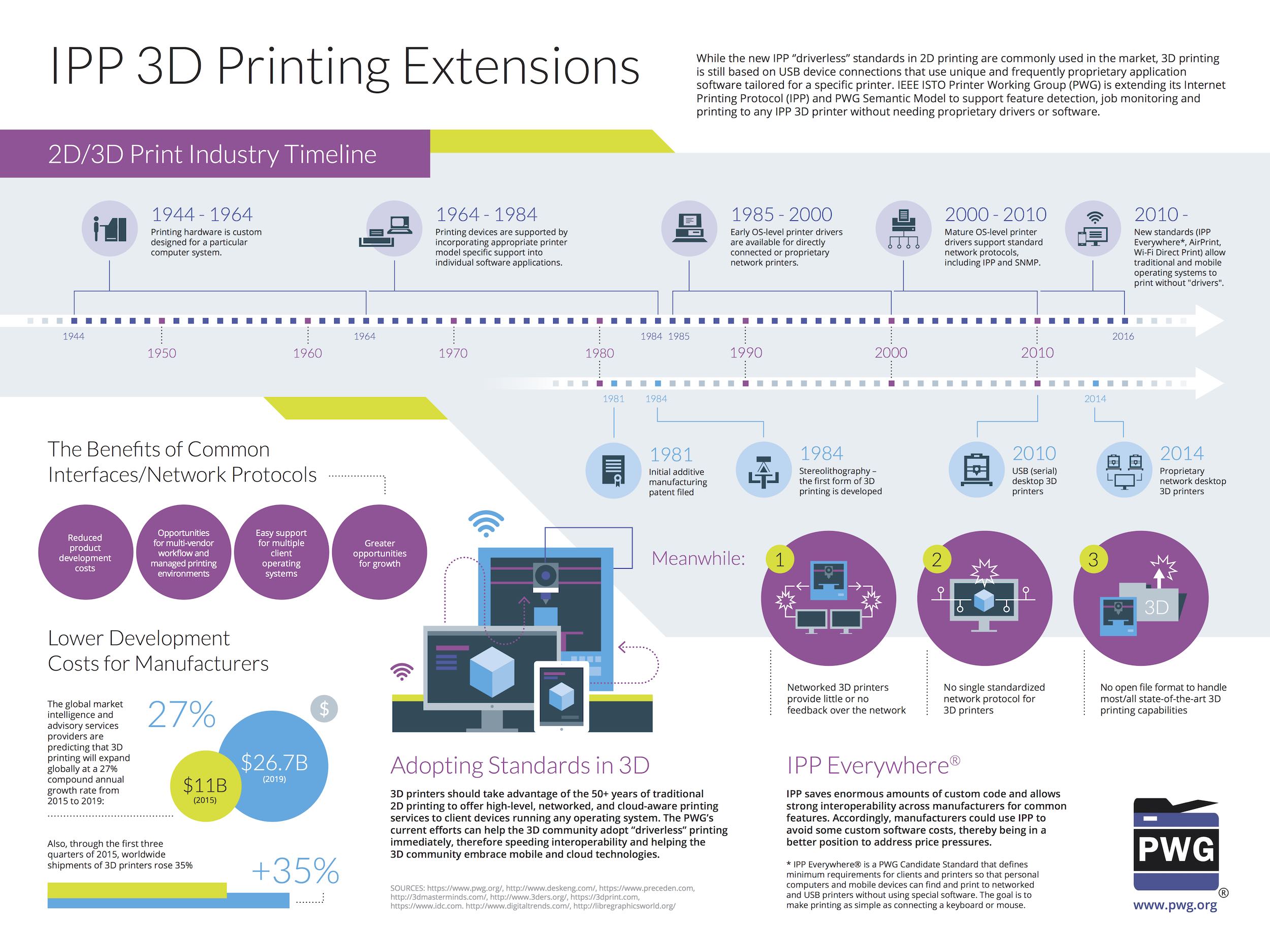The Printer Working Group (PWG), a program of the IEEE Industry Standard and Technology Organization (ISTO), and the 3D Manufacturing Format Consortium (3MF), a Joint Development Foundation project developing a new, alternative 3D printing file format to the .stl, have made a formal agreement. Aiming to simplify 3D printing across devices, the agreement centers around extending the PWG-developed Internet Printing Protocol (IPP) standard for 3D printers and 3D file formats like 3MF. In doing so, both companies aim to establish a standards-based approach to 3D printing for any capable device without the need for vendor-specific software or drivers.
Smith Kennedy, PWG chairman, commented “Until the development of IPP Everywhere™, users had to install and continually update software to their computers and other devices to print. Printer makers had to develop, update and distribute a stream of driver updates.”
“With IPP Everywhere, a single universal driver supports all IPP Everywhere certified printers. We are working with the 3MF Consortium to bring that same efficiency and simplicity to 3D printing.”

From paper to 3D printing
PWG aims to optimize the synergy between printers, multi-function devices and the software supporting them, liaising with members from the paper printing industry in order to do so. PWG developed and promoted the widely implemented IPP to establish the IPP Everywhere standard, which helped simplify the traditional printing process and prevent the need to continuously update software and drivers.
The original IPP standard allowed clients to query printer capabilities, monitor printer status and other state changes, configure the printer, and submit, monitor, and control print jobs. PWG’s IPP Everywhere adds the possibility of personal computers and mobile devices to find and send print jobs to network and USB printers without the use of special software.
A 3D printing-focused subgroup of PWG has now worked towards expanding IPP to include the requirements of 3D printing. The 3D printing extension for IPP integrates PWG’s network protocol and job ticket formats (which describes how an object should be 3D printed) for 3D files. Furthermore, it supports data exchange and embedding within the 3MF and 3D PDF file types. This helps to preserve user intent and simplify the 3D printing process across different devices without the need for vendor-specific software and drivers.

Establishing a universal 3D file format
Initially formed in 2015, the 3MF Consortium aims to establish a new universal and open source 3D file format in place of the commonly used .stl, with the goal of making 3D printing easier and efficient. The consortium’s collaboration with PWG to establish and integrate the IPP standard within 3D printing thus falls in line with its own objectives: “Our work here at 3MF has focused on making 3D printing easier and more efficient for manufacturers, users and service providers, and the PWG relationship reflects that mission,” noted Adrian Lannin, executive director of the 3MF Consortium.
“Supporting widely used existing IPP Everywhere standards will make it easier for users to install and use 3D printers.”
The 3MF file format enables design applications to send full-fidelity 3D models within a single file, including all the necessary information, to a variety of applications, platforms, services and printers. The consortium continues to gain new members as part of its bid to establish the 3MF file as the universal solution within 3D printing, announcing that 17 companies have adopted its 3MF platform to create 32 products in November 2018. 3D printing giants such as EOS, Autodesk, 3D Systems, HP, GE, Dassault Systemes and Materialise are using 3MF to retain the full-fidelity of a design within their 3D models. Martin Steuer, Business Development Manager at EOS comments, “The 3MF 3D file format plays an important role in am by helping to improve the efficiency and productivity of am solutions while eliminating the issues found with older file formats.”
Subscribe to the 3D Printing Industry newsletter for the latest news in additive manufacturing. You can also keep connected by following us on Twitter and liking us on Facebook.
Looking for a career in additive manufacturing? Visit 3D Printing Jobs for a selection of roles in the industry.
Featured image shows a 3MF 3D model. Image via 3MF.


